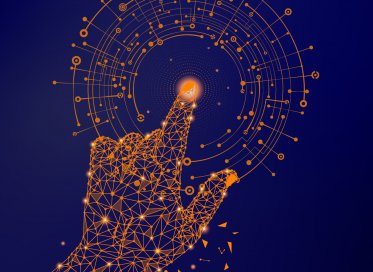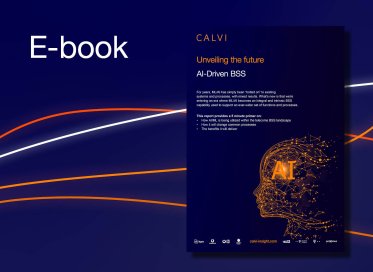Revealed: Status of Omnichannel Support for Bill Inquiries
29 September 2022
|
Rob Vos
Calvi recently undertook a Bill Experience Capability Assessment in conjunction with ETIS, which revealed key insights into the support provided to B2C and B2B customers in Europe. In this blog, Calvi Bill Consultant Rob Vos reveals how ETIS participants think they’re doing and what they intend to invest in.
In conjunction with ETIS, Calvi recently interviewed 22 B2B and B2C telcos to discover key performance indicators (KPIs) in the European telecoms billing market. One of the areas studied was how bills and bill inquiries are supported. The study revealed that customer communication and support is now occurring over an ever-increasing range of channels as CSPs continue to respond to customer needs but, for most participants, voice remained king. However, there were some key differences between how B2C and B2B customers were being supported and what CSPs saw as important.
B2C customer support still heavily reliant on the call center
Despite all the talk about digital channels, B2C customer support is still heavily reliant on voice calling. But the next most important consumer support channels are chat and web apps. Physical mail is seen as a far less important channel nowadays, as CSPs move away from mailing bills and corresponding with their customers. Instead, nearly 8 out of 10 (76%) intend to invest in improving the performance of their web apps.
E-mail still important in the B2B market
8 out of 10 B2B telcos still saw e-mail as being important for customer support, although even more perceived web apps to be important. This is reflected in their intentions to invest - with all B2B CSPs investing in web apps and 8 out of 10 investing in mobile apps. Even though they perceive their voice calling performance to be good, 8 out of 10 still intend to invest in this channel, reflecting the importance of voice calling to this business unit.
Voice support differs between B2C and B2B
Although voice is king for both markets, voice support is different in the large enterprise market to voice support in the SME and B2C market. Instead of calling a contact center, large enterprises are usually supported by dedicated teams or account managers.
But both markets are challenged with lengthening queues and longer support calls due partly to the success of digital channels. As customers are provided with the means to answer simple inquiries themselves, the calls the contact center or account manager have to deal with are more complex and take longer to resolve. This means staff need accurate billing data at their fingertips to speed resolution and reduce both customer frustration and stress on staff.
New support channels are emerging
The ETIS study also revealed the increasing importance of two additional support channels – chatbots and social media. While chatbots can be a useful option to resolve simple inquiries, they are only as good as the data they can access. Social media is also becoming an increasingly important means of communicating with customers across both sectors. Nearly 8 out of 10 (76%) B2C CSPs, for example, say customers can easily inquire about their bills via this channel today, and 6 out of 10 (60%) B2B CSPs say the same.
Omnichannel support is still immature
CSPs are optimizing their support channels and rolling out new support channels, such as via social media and chatbots. They’re also considering how to integrate channels to create seamless and consistent omnichannel experiences. Traditionally they’ve seen doing the latter as complex, expensive, and time-consuming. This means omnichannel support – where customers can choose the channel they use and seamlessly shift channel – is still immature in both B2B and B2C sectors.
High-performing customer support teams are more than twice as likely to take an omnichannel approach to customer support than low-performing teams, so improving omnichannel support is seen as critical.
Although CSPs have traditionally viewed omnichannel support as difficult, time-consuming, and expensive, it needn’t be so. The Calvi Core platform frees data from individual silos, bringing it all together to enable convergent digital bills. But by doing so, it also provides a foundation for omnichannel initiatives, providing a single and trustworthy source of billing truth that ensure all channels are in-sync.
Our specialist business consultants, meanwhile, can help CSPs re-use their investment in Calvi Core to support omnichannel customer support. They can provide expert insight to speed omnichannel initiatives and help clients create an approach that not only delivers a smooth, seamless support experience today but is also future proofed, so that adding new channels to the mix is straightforward.





